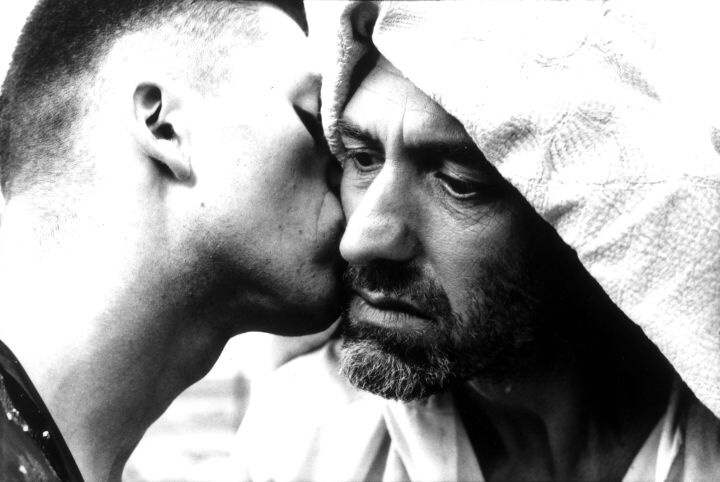Films
Filmy uváděné na letošním ročníku. Podle čeho jsme filmy vybírali a kdo je hodnotí se dozvíte v sekci O festivalu. Oblíbené filmy si můžete snadno vytisknout nebo je poslat mailem známým a blízkým. Diváci a divačky Mezipater tradičně udělují Diváckou cenu - hlasovat budete moci na webovém speciálu České televize.
This fresh documentary by a duo of young directors takes the viewer on a ride through the uncharted terrain of bisexuality, because “the divide between gay and straight is crumbling”. Along the way, they examine the life stories of a wide range of people – from youths going out with a guy one Friday and a girl the next to the issue of bisexual parenting, and back it with statistical and scientific inputs, to show that bisexuality is not quite the minority it may seem. Despite perhaps asking more questions than for which they offer answers, this is nevertheless a true road movie where the journey itself is the destination.
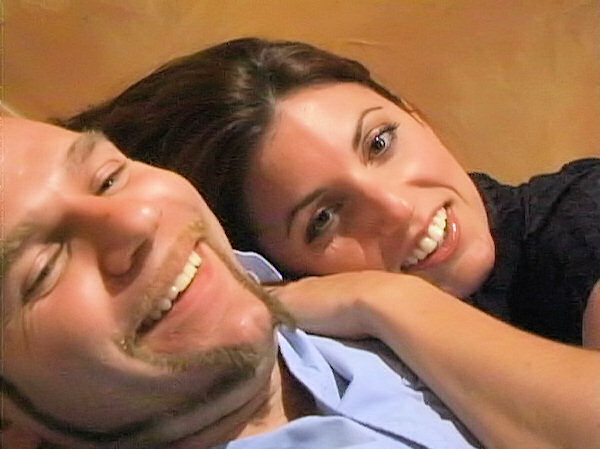
Cohen, through his latest persona, Austrian celebrity wannabe Brüno, pulls no punches in provoking the homophobia within society, putting it on the spot in the most awkward of circumstances. Besides parodying the social fear of anything other than hetero-normative sexuality, he also focuses on many areas of life where gays (and lesbians) are discriminated. A must see.

What does it mean to be male and gay? How does gay masculinity manifest itself? How is our view of masculinity changing, both over time and geographically? Hear from a rugby player, policeman, cowboy, and effeminate boy as well as from experts in the fields of history, psychology and sociology as they try to answer these questions. The documentary looks at stereotypes and tracks the way gay men are perceived by their surroundings and how they see themselves. A film for all men and those interested in men.
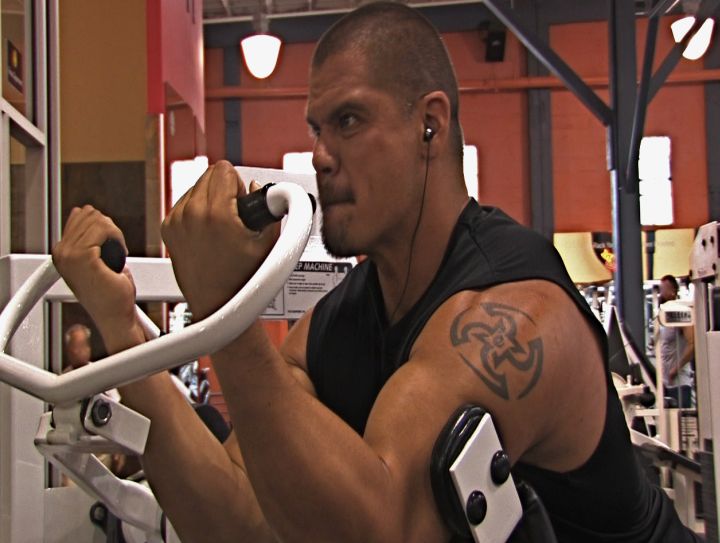
Set of lesbian short films
- Mindbender
- A Soft Place
- Ramona’s New Dresser
- The Girl Bunnies
- Dancing to Happiness
- Pages of a Girl
- SH/E
- At Home (or Love as Well)
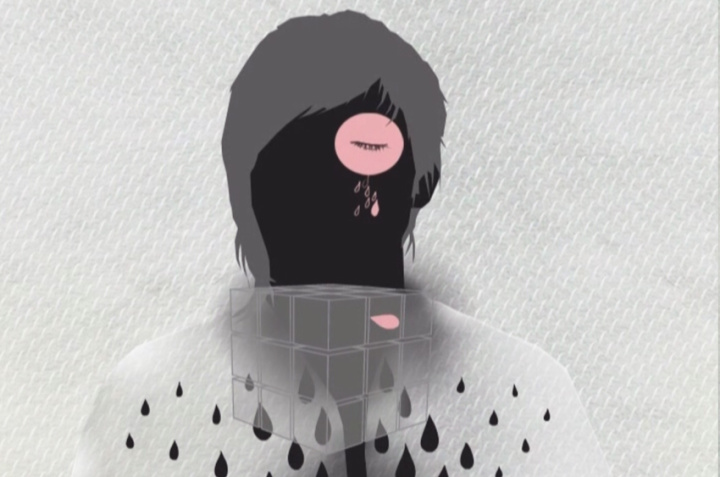

An exceptional documentary about film director Derek Jarman, whose retrospective is shown at this year's edition of Mezipatra. It is based on the elegy by Academy Award winning actress and his long-time muse Tilda Swinton “Letter to an Angel”, combining her narration, a very frank late interview with the director already dying of AIDS and rare exhibits of his art. Derek gives us a unique, personal portrait of an extraordinary man and artist, as well as a testimony of decades of queer life in England.
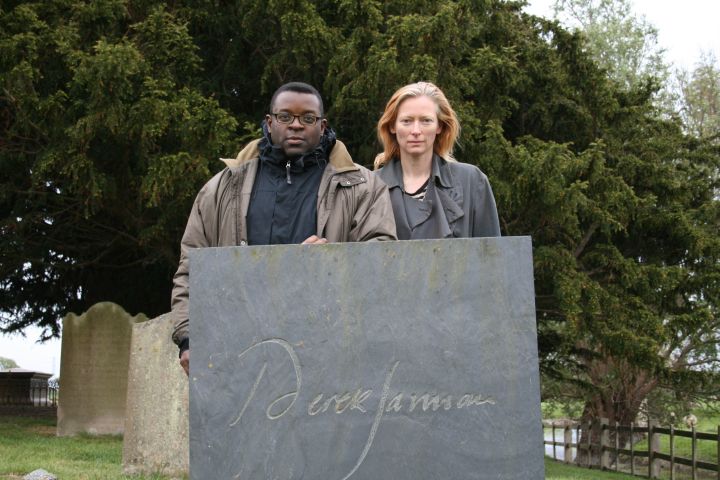
Thanks in large part to Gus Van Sant’s film, the world now knows who Harvey Milk was. A riveting documentary, The Times of Harvey Milk, is the story of a gay activist and politician made six years after Milk was murdered. It won an Oscar and created an international sensation. Remarkable archival footage presents the real hero, whom Czech audiences became familiar with through Sean Penn’s performance. Rob Epstein, the film’s director, went on to make two more key documentaries “The Celluloid Closet” and “Paragraph 175”.
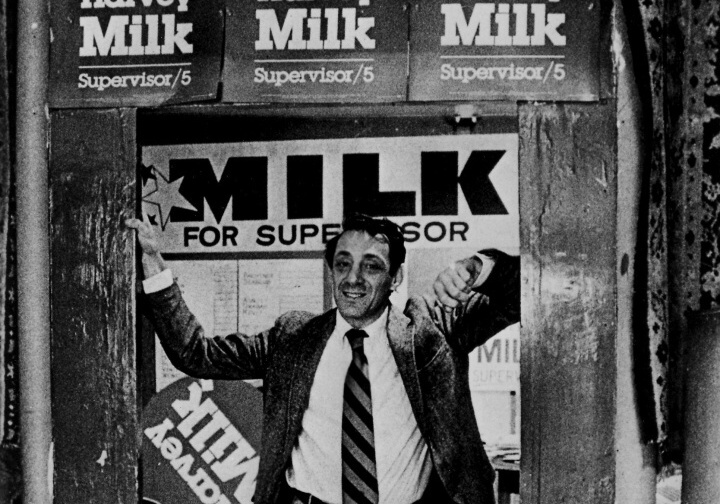
Laura, Sofía and the Atacama Desert of northern Chile. Laura and Sofía can neither live together, nor without the other. An intimate drama about the difficult path to the truth and a singular day following a night of unforeseen passion. Director Sergio Candel propels the lead actresses to excellent dramatic performances and a mesmerizing camera supports the intense atmosphere.
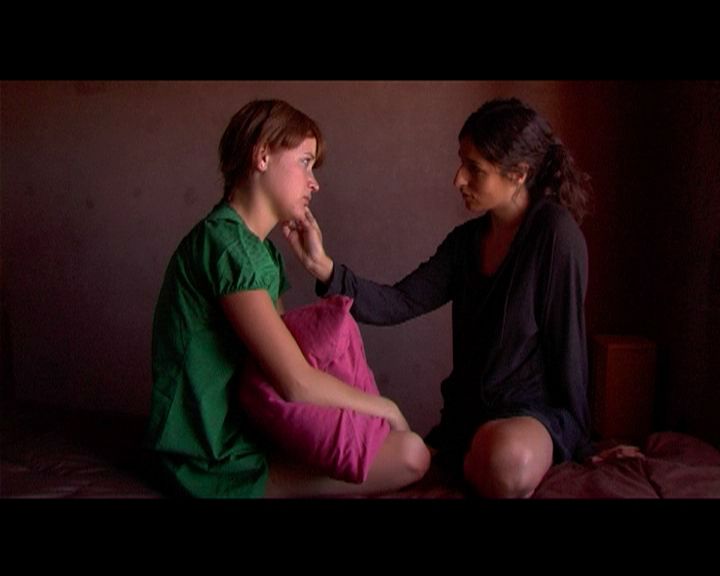
In “Edward II”, Jarman freely adapts the work of the same name of Christopher Marlowe, gay enfant terrible of Renaissance theatre; spiking it with topical political content. The plot unfolds in a minimalist setting of bare walls; focusing our attention on the excellent performances of the actors and avant-garde costumes. Young English king Edward II has Piers Gaveston as both his advisor and lover. This fact evokes the displeasure of Edward’s wife Isabelle (mesmeric Tilda Swinton), who manipulates the noble Mortimer to remove Edward from the throne. An unforgettable film.

It is not possible to write an opera about saints, when the main characters don’t die. Therefore Gertrude Stein, avant-garde writer and lesbian icon, is ill-tempered. This time, her heroes are Zackie Achmat from South Africa, for refusing to take anti-retroviral medicine until it’s available to everybody and Canadian pharmaceutical industry adversary Tim McCaskell. Both are still alive and combatant in their never-ending AIDS activism. John Greyson’s (Lilie, Proteus) documentary style atonal opera serves as both a lesson in recent history as well as pure cine-film experience.
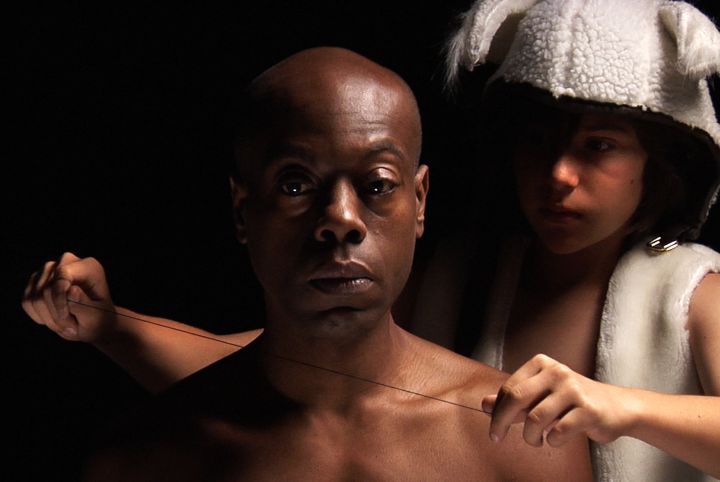
Jérôme, a young Parisian, after breaking up with his boyfriend decides to go to where the sun always shines - Los Angeles. There he meets many bizarre characters, immerses himself in their colourful, crazy world, and tries his luck at becoming an actor. His relationships are casual and fleeting affairs, as he’s unable to leave memories of Paris and his former boyfriend behind. This beautiful and very intimate film about the difficulty of coping with the loss of a partner is inspired by Godard’s poetics and wittily mocks the Hollywood cliché.
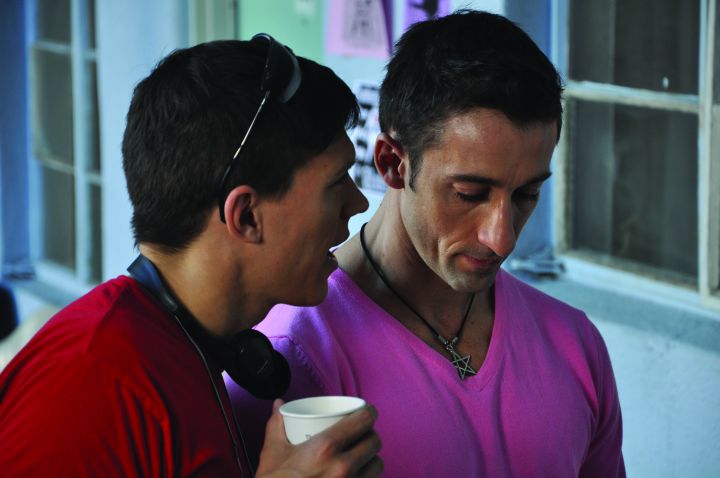
Set of short documentary films
- The Rise of Leatherman
- Excuse Me, What's Queever?
- Homo Baby Boom
- Roma Boys
- I Am Who I Am
- Busted
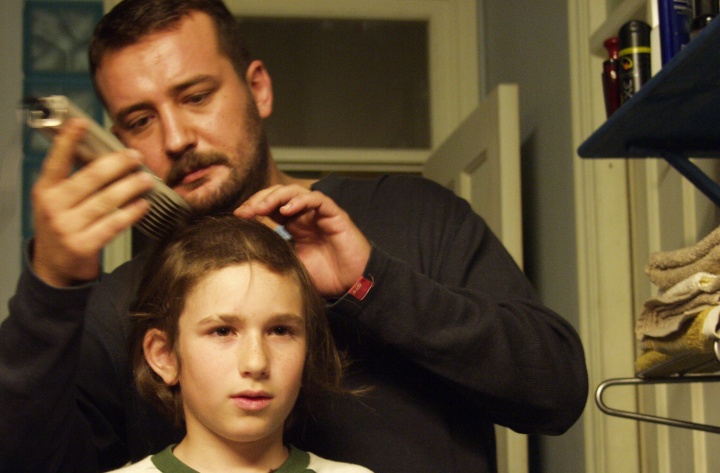
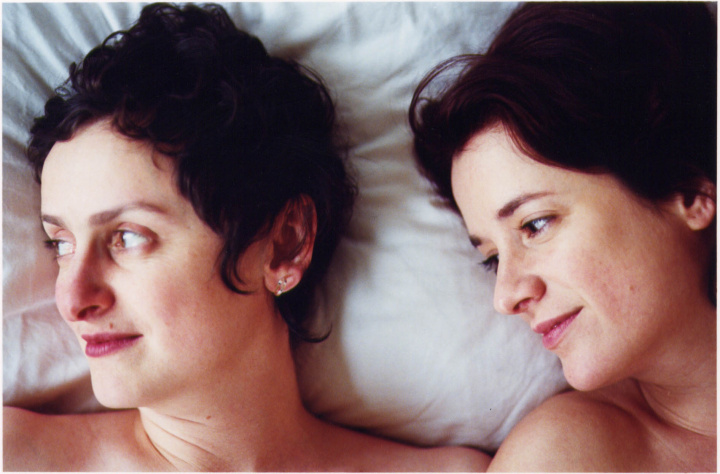
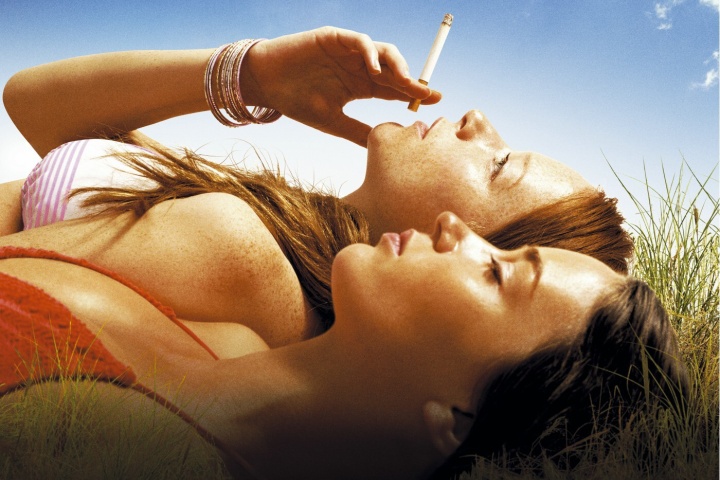
Nuno is an employee of a factory and a boyfriend of his colleague Melanie. But for a fee and under the name of Miguel — Melanie, who is often mistaken for a man because of her style and behavior, hired him to please her father and confuse her brother. Miguel is also a charismatic young man who after a chance meeting with a very young Jenny, falls in love with her. Jenny likes Miguel a lot but she has no idea that Miguel is actually Melanie. A tangle of alternative identities that Melanie creates to escape from herself starts to entangle. To Faro is grounded in a carefully built atmosphere and prime performances.


Deeply personal, this provocative documentary captures transgender issues in a very original way. It seeks to clarify what constitutes the masculine identity, and what stereotypes are linked to it. The director is not afraid to experiment with form, and combines half-fictional passages, stormy debate and intimate “diary” confessions on camera in order to answer a question in the most complex way: What does it mean to be Trans? The director’s personal story forms the framework of the movie.
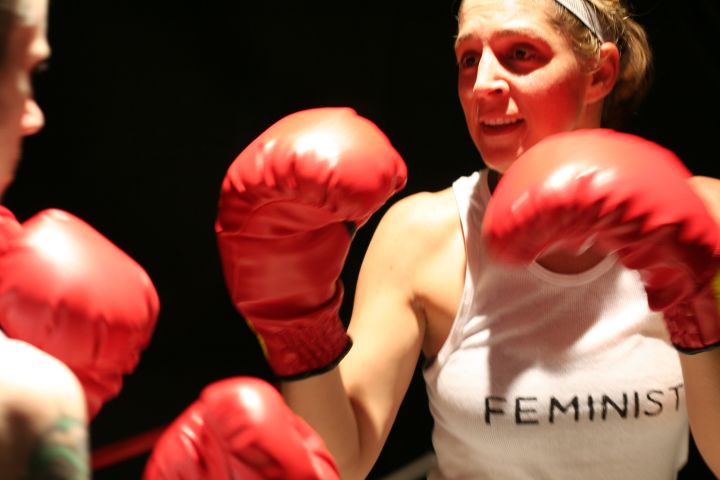
Emerson, a 13-year-old home-educated boy, lives with his parents in the snowy Canadian countryside. One day Emerson has to quit the idyllic family life and go to a local high school where he develops an unusual relationship with his homosexual teacher Don. The movie accentuates intimacy. We can watch Emerson’s wet dreams, Kaya’s adultery or Don’s sexual adventures. Whole New Thing was awarded on Canadian film festivals for outstanding performance, screenplay and the best Canadian feature. At Mezipatra 2006, the film won both the Audience and Jury Award.
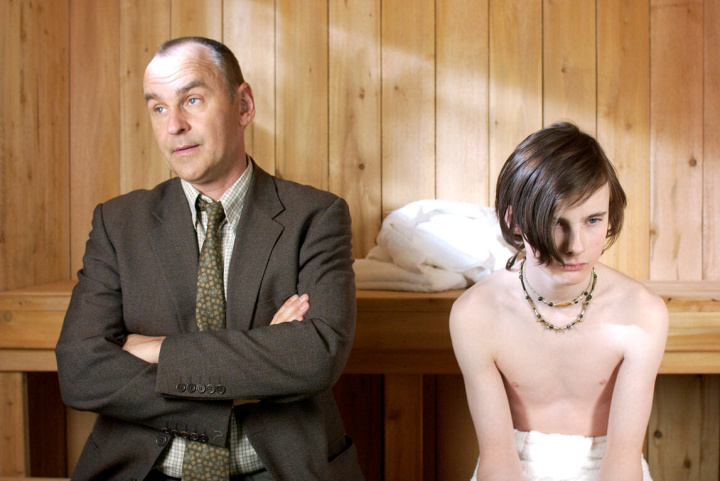
Set of gay short films
- Amsterdam Diary
- Heiko
- On the Bus
- The Traitor
- James
- Chef‘s Letter
- The Hope
- Weak Species
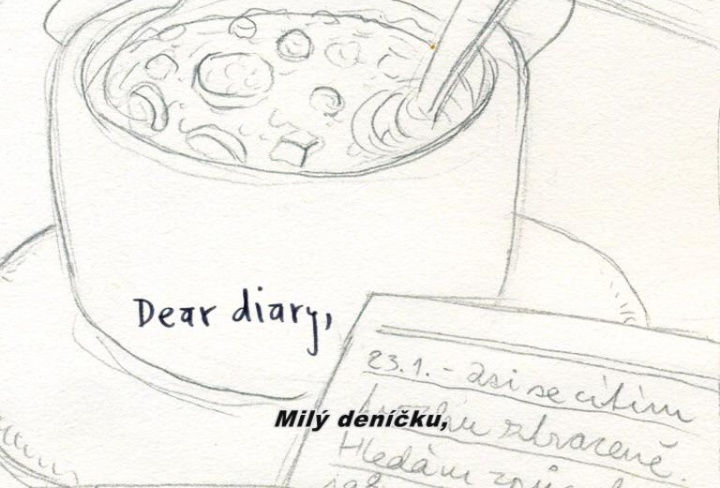


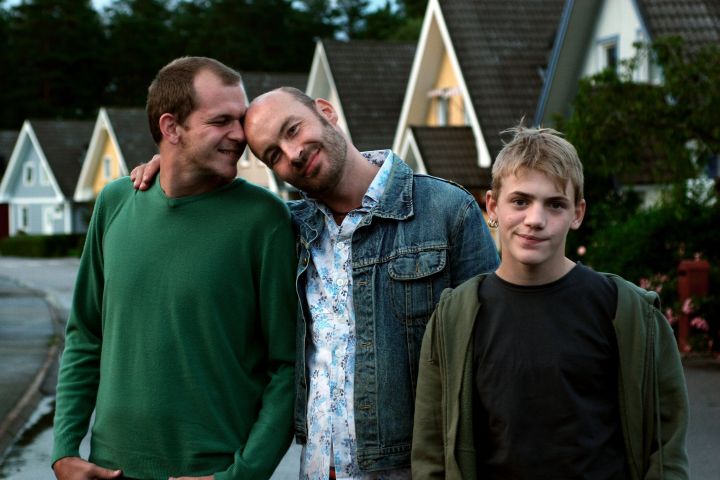
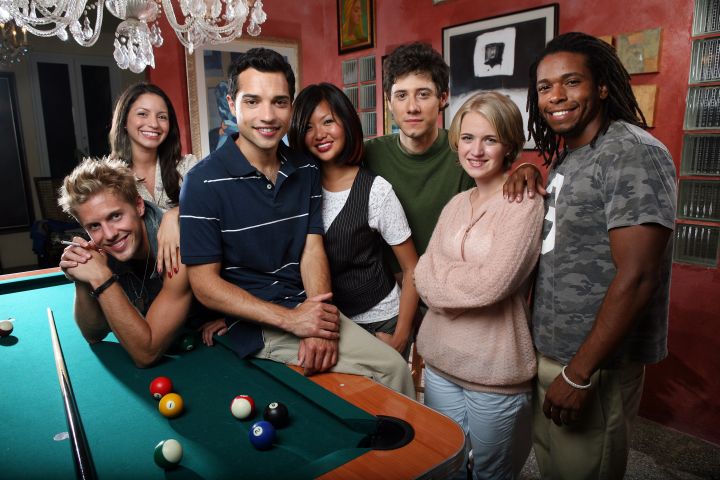
This film, the latest by the living legend of feminist and queer cinema, Monika Treut, premiered at this year's Berlinale. An original tale that narrates the life of the artist Sophie, blended from recollections and the vibrating present and shifting between Hamburg and Taipei, after the murder of her lover. According to Taiwanese tradition, a woman can return from the afterlife as a ghost and punish the living for their sins. A complicated, mysterious and charming romance about inspiration, immortality and passion.

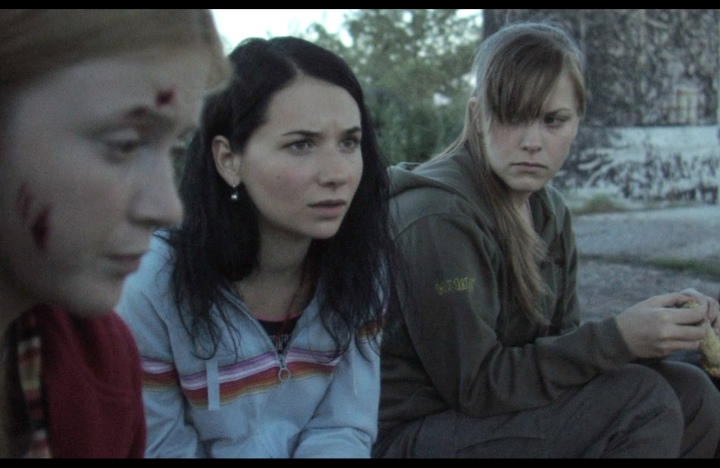
Set of short films of FAMU students
- Dykes Don't Wear High Heels
- The Mindbender
- Sometime Somebody
- Reunion
- The Hope
- The Wedding Dress
- Roma Boys
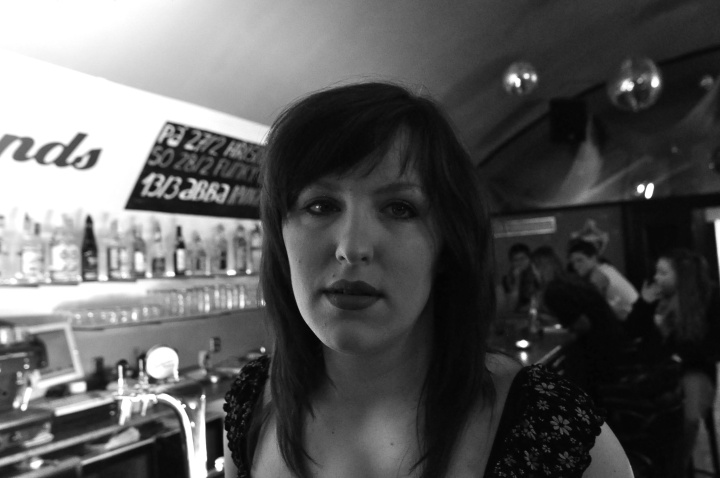
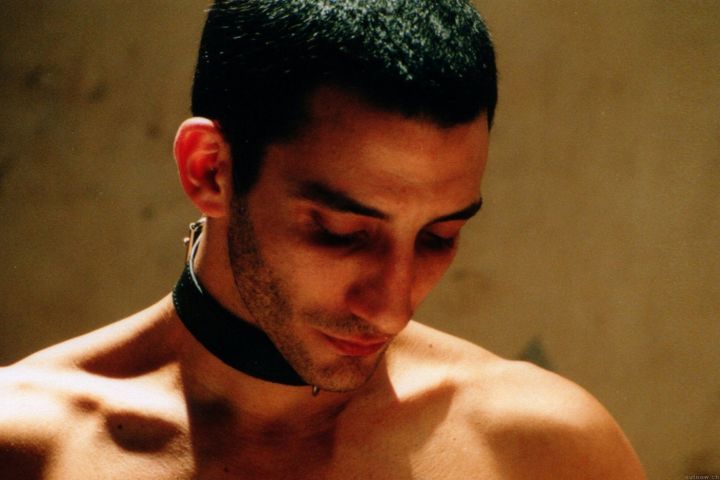
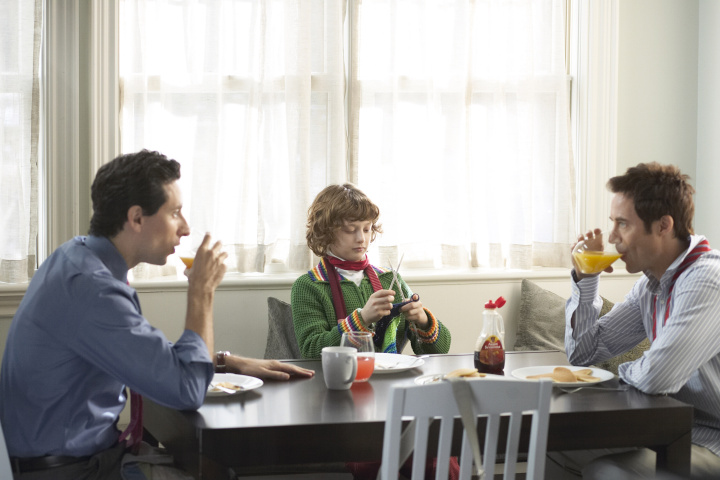
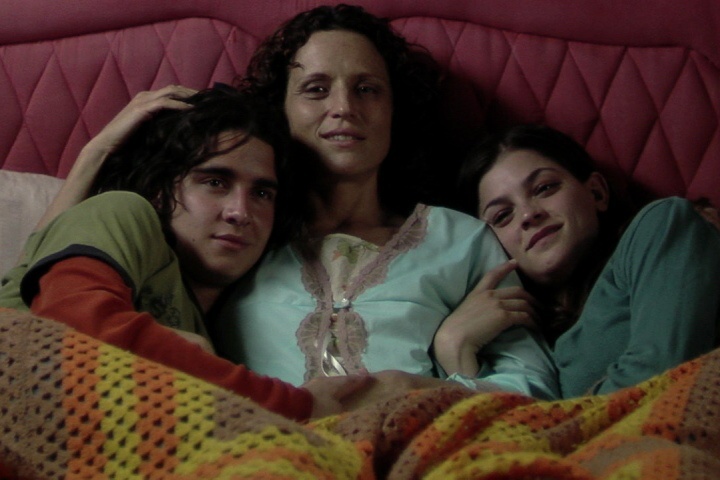
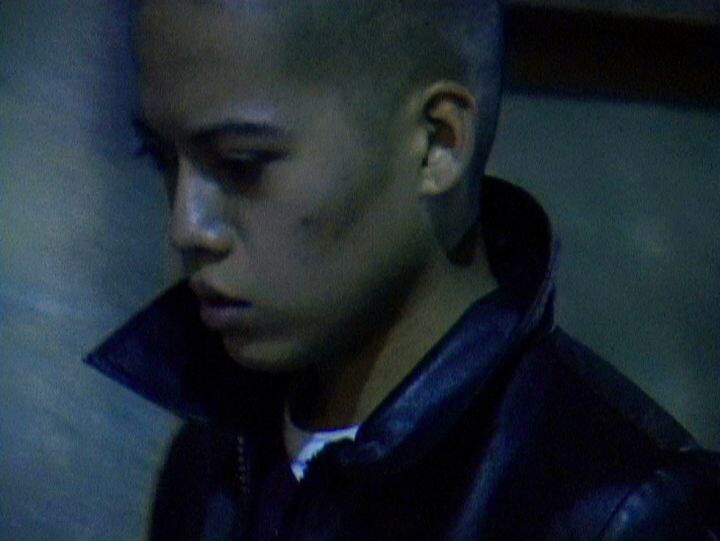
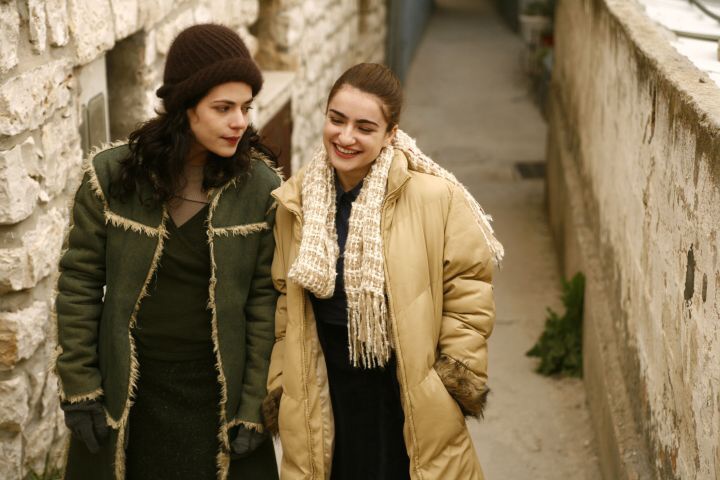

Set of short documentary films from Czech Television
- O co tančil Ondrej Nepela
- Secret Chamber of Vladimír Marek
Free entry

This new film of João Pedro Rodrigues (Odete, O Fantasma) narrates the story of the aging star of a drag show. Tonia is determined to change her gender, under pressure from her younger friend Rosário. However, her religious convictions hinder her final resolution. Her relationship with the unbalanced youngster is proving to be destructive for her; and on top of that, she discovers that she seriously ill. Not willing to face these problems, she compels Rosário to set out together on a trip to his old home, a place he no longer knows how to find. Lost in the magical woods, adventure unfolds, which neither of them expect. The film’s cinematography is influenced by Rainer Fassbinder’s aesthetics and premiered this year at Cannes.
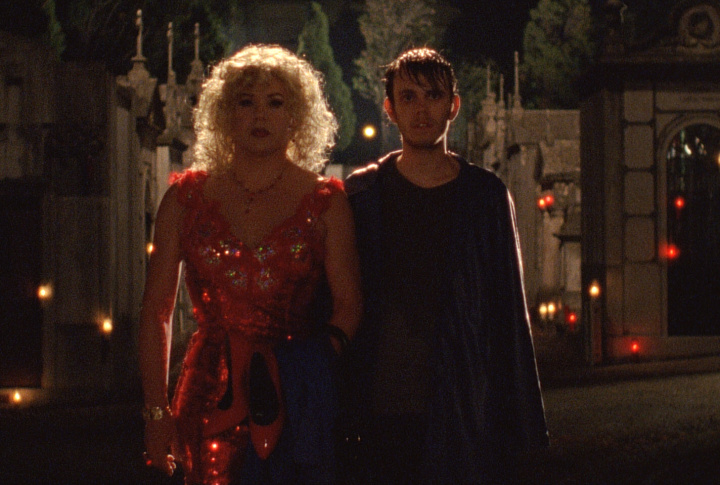
The film tells the story of an English soldier and his bride, a nurse, during the First World War. Captivating music, War Requiem by Benjamin Britten, plays the major part in this opus almost shorn of dialogues. Very suggestive mosaic of images is accompanied by oppressive music and Wilfred Owens’s verse about the horror of war. Jarman works not only with documentary footage from authentic conflicts (world wars, Vietnam, Angola), but also with intimate, poetic scenes. The result is an impressive anti-war musical film, in which Laurence Olivier appeared in front of the camera for the last time.

“About what one cannot speak, one must remain silent,“ said Ludwig Wittgenstein, one of the most important philosophers of the 20th century and a man who exchanged the comforts of one of the wealthiest families in the Austro-Hungarian Empire for a life powered by doubts, in search of universal principles of language. A very compelling portrait depicts Wittgenstein’s unconventional life and conveys his passion for linguistics, philosophy of thoughts and especially for the possibilities and limitations of language. Visually captivating and thematically provocative, the film is one of Derek Jarman’s last movies.
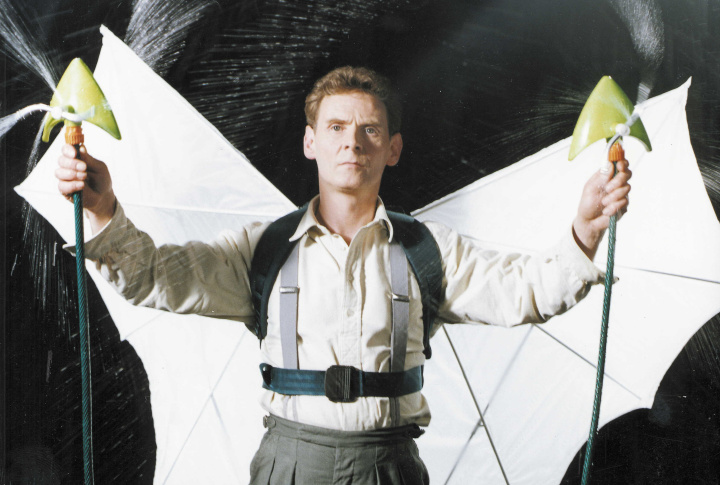
Many things can be going on with adolescents, but Alex is at an unusual junction. She has to choose whether to be a girl or a boy. Her parents resisted the doctors’ pressure and did not allow them to operate on their child to impose one sex or the other. Alex’s mother would like to have a daughter in future, but her father realizes how much Alex has changed through adolescence. But the hardest decision devolves on Alex who is forced to think about herself under pressure from parents and the village that reveals her “perverse“ secrets. Grand Prix de la Seaming de la Critique in Cannes.

This visually impressive picture deals with the polemic of Christianity, homosexuality and the mortality of man. A sequence of bizarre biblical motifs - Madonna with child fleeing paparazzi, Judas hanged like a piece of property in an advertisement - fades into the cruel story of two amorous youths, who are arrested, humiliated, tortured and finally killed. The movie is a suggestive personal contemplation of the fate of gay minority in the 20th century, shot by Jarman over a period when his AIDS illness was seriously affecting his health.
